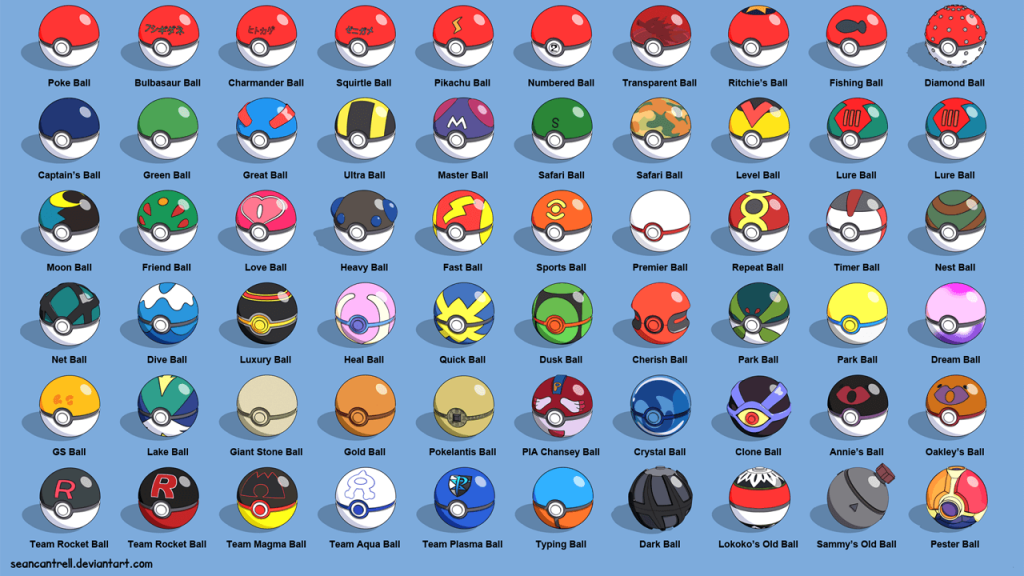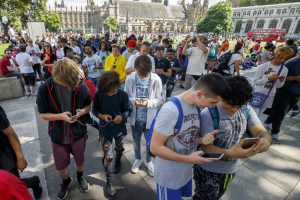Generally Speaking
Pokemon Go is pretty fantastic. Not only is it addicting, it’s one of those games that can be played casually, while going about your business. Grocery shopping? Good, now you can catch some Pokemon while you’re at it. Life got a whole lot more interesting.
There’s countless of reports of people who have gotten out of the house more, made new friendships, and even gotten rather romantic as a result of playing the game. Married couples catch Pokemon while shopping, and hermits are getting some much-needed sun and fresh air.
But notice, none of this is the usual sign of a video or mobile game.
Games, mobile or not, don’t involve the outside world. They are contained in a screen, controlled by buttons or screen touches. However, ARG’s are a different story. Alternate Reality Games involve the outside world. This is precisely the category Pokemon Go falls under. And if that’s the case, then Pokemon Go might not be a game at all!
ARG’s can be an experiences, more so than games. And if Pokemon Go is making people get off their potato chip-crusted couch just to befriend other players well… then it just might not be a game at all, right? Maybe there isn’t much of a game to be played, just a series of actions that happen to encourage some people to get out more.
This is what I’m battling in this article, to find out whether Pokemon Go is a game, or an experience. Either way, it’s still an ARG, and an addicting one at that.
What Exactly Is An ARG?
Alternate Reality Game. ARG’s are known for using the real world as a platform, and it has what’s referred to as transmedia storytelling, which allows the story to mold around player actions. Transmedia storytelling uses techniques that penetrate people’s daily lives. So, think of it like that time you brewed some coffee and caught Mewtwo. You were doing something mundane, part of daily life, and something occurred: Mewtwo was standing right there, right by the kitchen counter.
Normally in Alternate Reality Games, there’s multiple forms of media involved, and each one is used to deliver unique content. Everything is connected somehow, but also different. As an example, consider 2001’s Majestic, one of the first ARG’s known to man. It didn’t do well, but that’s besides the point. You could play this game on everything from AOL Instant Messenger to BlackBerry messages, and even fax.
Feel old yet? Because I sure do.
Majestic had interesting gameplay: players were told the game had stopped, then were told that there was a conspiracy behind the stoppage. Players would receive clues that they’d use to solve puzzles, and get more story details. Depending on what they did in a day, and with what other players, they would receive different content.
Pokemon Go is similar in that it has taken the formula and molded it to better suit modern times. It’s only available on iOS and Android, so the multiple forms of media have been reduced. However, there’s different content depending on where in the world you are (regional exclusives). Despite those specific exclusives, all Pokemon Go content is connected. It’s all about catching Pokemon. All the players are still trying to get a larger, stronger Pokedex.
By this definition, Pokemon Go classifies as an ARG, but where’s the narrative? There isn’t any. The entire gameplay can be summarized as walking around, finding Pokemon, catching them, and competing with other players at gyms. You create your own story, Niantic just provides actions you can take.
So the question remains, can Pokemon Go qualify as a game if there is no story to be had?

Games Contain Stories
The kicker with Alternate Reality Games is that they are controlled by game designers, not AI, like in a video game. When players interact with challenges or other players, they are supposed to be uncovering more of the story, the narrative. And the story evolves according to players’ responses. The designers will make changes to the script for the next day’s events.
Pokemon Go is entertaining, and certainly cute with all the Pokemon you can catch, but that’s about it, isn’t it? There is no narrative, no story, and there are no puzzles. When players connect with others, they aren’t uncovering more of the story, they are competing to be Gym masters. Pokemon vs. Pokemon, the new Gym master will reign, unless the existing one hold his/her ground successfully.
There is absolutely no story that evolves according to player actions.
The odd part about ARG’s is that they can be experiences. They can be a series of actions without stories. But it’s these types that don’t qualify as games. To further define Pokemon Go, we must define what a social experiment actually is.
What Is A Social Experiment?

Remember when you took sociology in college and learned about human development, structure and functions within society? Well, let’s channel that again. Social experiments are the epitome of sociology, used to analyze order, disorder and change. Things like social relationships and interactions are put on a platter.
As with any experiment, there are control groups and variables. People are placed in a real world setting and then thrown different treatments. It’s not medication, like in a medical experiment. No, these treatments consist of objects or ideas placed in the subject’s environment. Everything else remains untouched. The subjects can go about their daily lives as per usual, but there will be something out of the ordinary. Something foreign, something… new.
How will these objects affect the subjects? Will this group differ from the control group, representing the status quo? If they do differ, then how? Will they suddenly add something to their daily habits? Maybe their dates will consist of catching Pokemon together?
To better understand if Pokemon Go can, in fact, be called an experiment, let’s talk about the specifics. Does Pokemon Go have the characteristics of a social experiment? Well, Niantic has taken Pokemon and placed them in subjects’ rooms, neighborhoods, hangouts, etc. They haven’t done anything else to alter the environment. People can still go about their lives in regular fashion, but there’s Pokemon around. This has led people to adopt new hobbies, like meeting up at PokeStops and catching Pokemon with friends. But notice, the game developers aren’t doing anything toward story molding, because there isn’t one.
If anything, Pokemon Go is affecting human lives in a variety of ways. It’s been called the new Tinder. It’s encouraged people to make friends. Some have even attributed the game with helping them exercise more.
But not everything is positive. As is the case with ARG’s, Pokemon Go can be dangerous, if not downright deadly. People have been robbed at gunpoint, phones have been stolen, couples have forgotten their children in an effort to chase after Pokemon, and some have even been killed. The first death was a 20-year-old man, shot dead while playing in a San Francisco park. There’s been more deaths since then, including people in car wrecks.
I know what you’re thinking: what about the control group? Well, that easy: everyone who isn’t playing Pokemon Go represents the status quo. They remain unaffected by Pokemon. A trip to Target is just that, a trip to a store to pick up some Archer Farms and coffee mugs. It isn’t a PokeStop, and it most certainly isn’t a Gym.
The Verdict
Pokemon Go isn’t a game, people. It’s an experiment. It’s an ARG that focuses on providing people with objects in their environment that affect their daily lives. It has altered and even ended the lives of countless people, on a global scale. From blossoming relationships to budding new friendships, there are many reports of people attributing Pokemon Go with life changes.
As if that’s not enough proof, just like in social experiments the environments remain unchanged, with the exception of the Pokemon, and there is no story or narrative to uncover. Players don’t have to work together to solve riddles or puzzles. There are no game designers that alter the story depending on player action.
Every time there’s an update, like with the latest Second Generation Pokemon additions and regional exclusives, it’s another instance where objects could potentially alter or influence someone’s daily life. Suddenly, brewing coffee is less about trying to wake up in the morning, and more about finding a Pokemon you can later tell your new friends about. It’s all about bonding, getting people out of the house, and doing something differently as a result of seeing Pokemon everywhere. And it’s worked out pretty wonderfully. Controversial or not, Pokemon Go has truly affected people for better or worse.
Pokemon Go may not be a mobile game, but it is certainly an addictive social experiment. Watching what people do when discovering Pokemon is nothing short of exhilarating. The simple addition of Charmander can suddenly encourage a hermit loner to go out, meet a girl, make some new pals, and change his life around. If that’s not astonishing, then nothing is.

